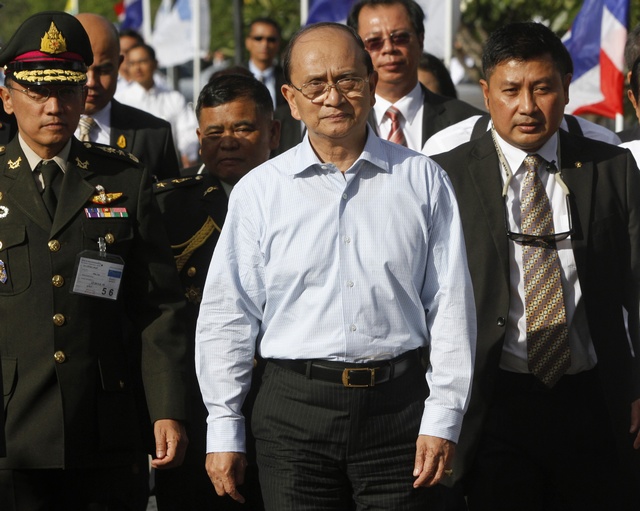President Thein Sein has been accused of using political prisoners as “pawns in his efforts to persuade the international community to lift sanctions” by releasing 514 inmates, including hundreds of foreign nationals, from jail on Monday.
At least 300 political prisoners remain behind bars in Burma, including student activists and ethnic minority rebels, according to the latest data by the Assistance Association for Political Prisoners (AAPP).
“President Thein Sein claims to be a reformer, but 18 months after becoming president there are still hundreds of political prisoners, and he has not abolished any of the laws which were used to arrest and jail them,” said Wai Hnin Pwint Thon, Campaigns Officer at Burma Campaign UK (BCUK).
“These releases are not about reform, they are about providing a fig leaf for President Obama for him to justify lifting more sanctions, despite the fact that Burma’s still not a democracy and still has one of the worst human rights records in the world.”
According to AAPP, who monitors political prisoners in Burma, only 87 of the released inmates can be considered political prisoners, although the numbers are difficult to confirm.
“The president doesn’t recognise the existence of political prisoners in Burma,” Bo Kyi joint-secretary of AAPPB told DVB. “If he is really interested in national reconciliation he needs to release all remaining political prisoners.”
President Thein Sein is due to visit New York next week to attend the UN General Assembly for the first time since taking office. He has received international praise for introducing a series of democratic reforms in the former pariah state, including releasing political prisoners and easing media restrictions.
But BCUK describes his latest announcement as a “public relations” stunt intended to persuade the United States to drop further trade sanctions. His visit will coincide with the end of Aung San Suu Kyi’s landmark tour of the US, where she is collecting a number of accolades for her work in Burma’s pro-democracy movement.
Human Rights Watch has called on the government to establish an independent international mechanism to verify how many political prisoners remain.
“All political prisoner releases are good news, but until there is independent monitoring of Burma’s prisons, it won’t be known how many political prisoners still remain behind bars,” said Phil Robertson, deputy Asia director at Human Rights Watch.
“Donor governments need to press President Thein Sein in New York to release all political prisoners and allow international monitors into the prisons.
Bo Kyi warns that heavy restrictions continue to be imposed on freed prisoners, including educational and travel restrictions and the retraction of professional licenses for doctors and lawyers.
Last week, Min Ko Naing, a prominent student activist from Burma’s 1988 democratic uprising, refused to travel to the US, where he was due to collect an award, in a public display of solidarity with political activists who had been denied their passports.
Amnesty International this week also expressed concern about the conditional release of Burmese political prisoners.
“The presidential amnesty was granted under section 204(a) of the Constitution and section 401(1) of the Code of Criminal Procedure, a form of conditional release which allows the authorities to re-imprison individuals without warrant to serve the remainder of their sentence if the authorities believe they have not fulfilled the conditions of their release,” the rights watchdog said in a statement yesterday.
“In past and recent amnesties some prisoners have been released on condition that they do not engage in political activities.”
Reports suggest there has been a surge in political prisoners in conflict-torn Kachin and Arakan states since Thein Sein took office. According to Bo Kyi nearly half of the remaining political prisoners were arrested in the past year alone.
“The Burmese government wants to discourage political activism,” he said. “They do not want to take responsibility for what they’ve done wrong. The majority of political prisoners were arrested arbitrarily and wrongfully, so they need to take responsibility for their rehabilitation and they need to take responsibility for transitional justice.”



